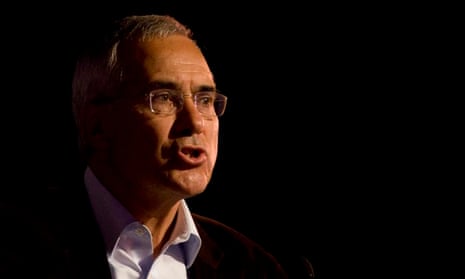The eminent climate economist Nicholas Stern has condemned the counterposing of economic growth with climate action as a false and diversionary tactic that could damage prospects for agreement at the Paris climate talks in December.
Several business groups have complained about the costs of climate mitigation and Andrzej Duda, the Polish prime minister, recently said that EU plans for ambitious emissions cuts would be costly and “bad for Poland”.
But speaking to an audience of ambassadors in Paris, Professor Stern, the chair of the Grantham research institute on climate change and the environment, said that it was a false dichotomy to posit growth against climate action.
“To portray them as in conflict is to misunderstand economic development and the opportunities that we now have to move to the low-carbon economy,” he said. “To pretend otherwise is diversionary and indeed creates an ‘artificial horse race’ which can cause real damage to the prospects for agreement.”
Green parties in Europe have often argued that decarbonisation requires an end to the model of economic growth “at all costs”. But Stern said that there was now “much greater understanding of how economic growth and climate responsibility can come together and, indeed, how their complementarity can help drive both forward”.
This would only grow as fears of climate dithering merged with concerns about the global economy, he said.
“There is a great danger of high-carbon lock-in,” Stern warned.
The International Energy Agency has previously cautioned that the world’s 2C target for global warming could be scuppered by the construction today of high-emitting factories, power plants and infrastructure that will chug out carbon for decades to come.
In Poland though, candidates are scrapping for votes ahead of an election that the incumbent Civic Platform party looks set to lose, and a high-carbon lock-out has been the more animating fear.
“Compared to the rest of Europe, we have enormous coal reserves and, simply understood, decarbonisation is completely not in our interest,” Duda said earlier this week. He also suggested that the country might abandon the EU’s climate goals if they were not reciprocated in Paris.
Last year, the EU unanimously committed to reducing its carbon emissions by 40% of the 1990 levels within 15 years.

Comments (…)
Sign in or create your Guardian account to join the discussion